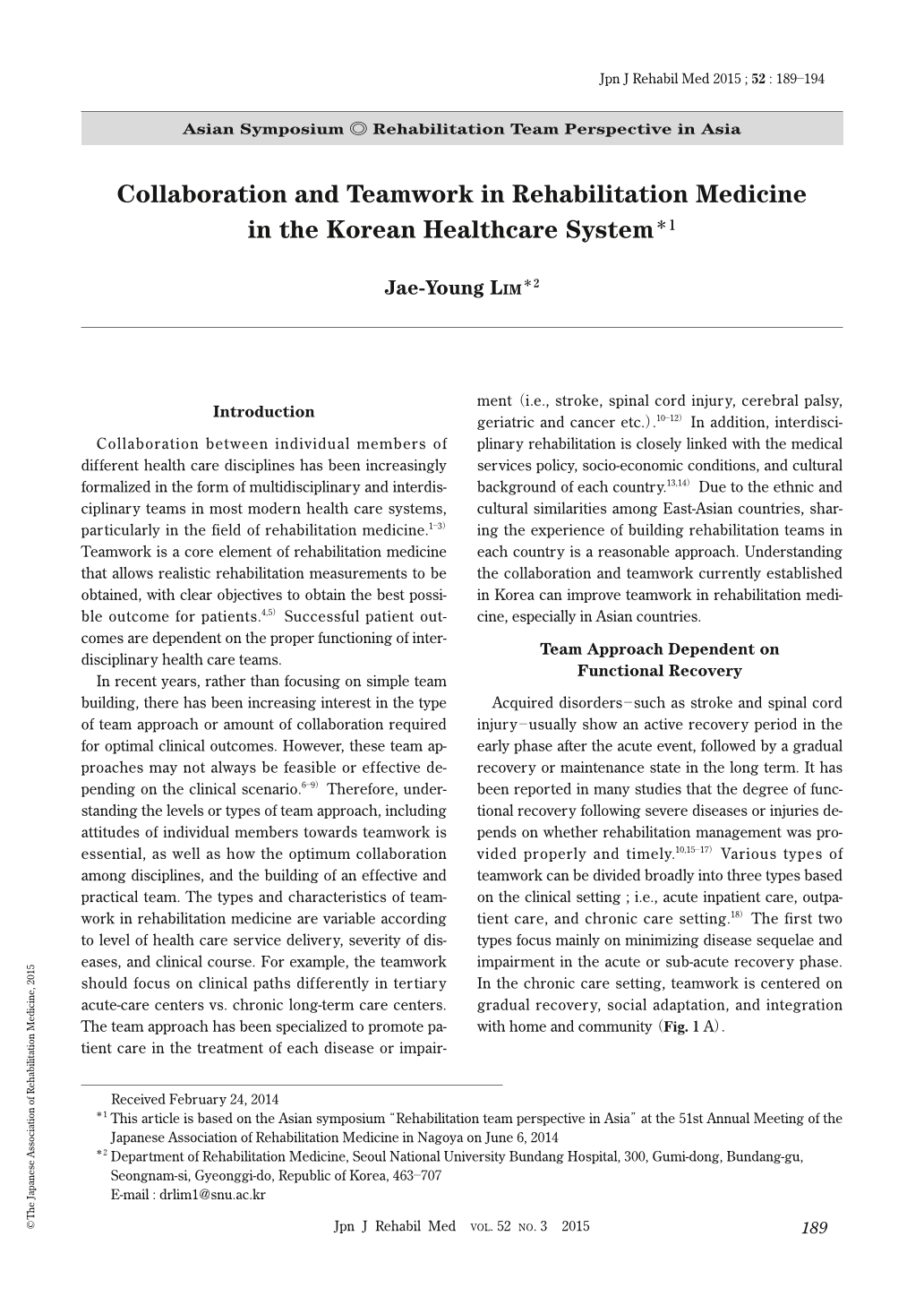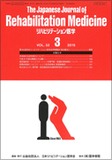Japanese
English
- 販売していません
- Abstract 文献概要
- 1ページ目 Look Inside
- 参考文献 Reference
Introduction
Collaboration between individual members of different health care disciplines has been increasingly formalized in the form of multidisciplinary and interdisciplinary teams in most modern health care systems, particularly in the field of rehabilitation medicine.1-3) Teamwork is a core element of rehabilitation medicine that allows realistic rehabilitation measurements to be obtained, with clear objectives to obtain the best possible outcome for patients.4,5) Successful patient outcomes are dependent on the proper functioning of interdisciplinary health care teams.
In recent years, rather than focusing on simple team building, there has been increasing interest in the type of team approach or amount of collaboration required for optimal clinical outcomes. However, these team approaches may not always be feasible or effective depending on the clinical scenario.6-9) Therefore, understanding the levels or types of team approach, including attitudes of individual members towards teamwork is essential, as well as how the optimum collaboration among disciplines, and the building of an effective and practical team. The types and characteristics of teamwork in rehabilitation medicine are variable according to level of health care service delivery, severity of diseases, and clinical course. For example, the teamwork should focus on clinical paths differently in tertiary acute-care centers vs. chronic long-term care centers. The team approach has been specialized to promote patient care in the treatment of each disease or impairment (i.e., stroke, spinal cord injury, cerebral palsy, geriatric and cancer etc.).10-12) In addition, interdisciplinary rehabilitation is closely linked with the medical services policy, socio-economic conditions, and cultural background of each country.13,14) Due to the ethnic and cultural similarities among East-Asian countries, sharing the experience of building rehabilitation teams in each country is a reasonable approach. Understanding the collaboration and teamwork currently established in Korea can improve teamwork in rehabilitation medicine, especially in Asian countries.
Introduction
Collaboration between individual members of different health care disciplines has been increasingly formalized in the form of multidisciplinary and interdisciplinary teams in most modern health care systems, particularly in the field of rehabilitation medicine.1-3) Teamwork is a core element of rehabilitation medicine that allows realistic rehabilitation measurements to be obtained, with clear objectives to obtain the best possible outcome for patients.4,5) Successful patient outcomes are dependent on the proper functioning of interdisciplinary health care teams.
In recent years, rather than focusing on simple team building, there has been increasing interest in the type of team approach or amount of collaboration required for optimal clinical outcomes. However, these team approaches may not always be feasible or effective depending on the clinical scenario.6-9) Therefore, understanding the levels or types of team approach, including attitudes of individual members towards teamwork is essential, as well as how the optimum collaboration among disciplines, and the building of an effective and practical team. The types and characteristics of teamwork in rehabilitation medicine are variable according to level of health care service delivery, severity of diseases, and clinical course. For example, the teamwork should focus on clinical paths differently in tertiary acute-care centers vs. chronic long-term care centers. The team approach has been specialized to promote patient care in the treatment of each disease or impairment (i.e., stroke, spinal cord injury, cerebral palsy, geriatric and cancer etc.).10-12) In addition, interdisciplinary rehabilitation is closely linked with the medical services policy, socio-economic conditions, and cultural background of each country.13,14) Due to the ethnic and cultural similarities among East-Asian countries, sharing the experience of building rehabilitation teams in each country is a reasonable approach. Understanding the collaboration and teamwork currently established in Korea can improve teamwork in rehabilitation medicine, especially in Asian countries.

Copyright © 2015, The Japanese Association of Rehabilitation Medicine. All rights reserved.


